#Forex Trading in Dubai
Text
The Ultimate Guide To Forex Trading In Dubai: How To Navigate The Market And Maximize Profits
Welcome to the dazzling world of Forex trading in Dubai, where opportunities abound, and fortunes await those with the savvy to navigate the market! In this ultimate guide, we will delve into the intricacies of Forex trading in one of the most dynamic financial hubs in the world. Whether you're a seasoned trader or a novice looking to dip your toes into foreign exchange, this comprehensive resource will equip you with the knowledge and strategies needed to thrive in this fast-paced environment. So buckle up as we embark on an exhilarating journey through the realm of Forex trading in Dubai! Forex Trading In Dubai
The Forex Market in Dubai: Opportunities and Challenges
The Forex market in Dubai is a vibrant and dynamic arena where traders can capitalize on exciting opportunities. With its strategic location at the crossroads of global trade, Dubai offers unique advantages for those looking to participate in currency trading. The city's robust financial infrastructure and technological advancements make it an attractive destination for Forex enthusiasts seeking to maximize their profits.
However, like any market, the Forex scene in Dubai also presents its fair share of challenges. Volatility, regulatory changes, and geopolitical events can all impact currency values and create risks for traders. Staying informed about market developments and implementing effective risk management strategies are crucial to successfully navigating these challenges.
Despite the hurdles that may arise, the Forex market in Dubai remains a fertile ground for those willing to put in the effort and stay ahead of the curve. By understanding the opportunities and challenges inherent in this dynamic landscape, traders can position themselves for success in their trading endeavors.
Understanding Currency Pairs and Exchange Rates
When trading Forex in Dubai, it's crucial to grasp the concept of currency pairs and exchange rates. Currency pairs are the foundation of Forex trading, representing the value of one currency relative to another. The first currency listed is the base currency, while the second is the quote currency. Understanding how these two currencies interact is essential for making informed trading decisions.
Exchange rates determine how much of one currency you need to purchase another. These rates fluctuate constantly based on economic data, geopolitical events, and market sentiment. Traders analyze these changes to predict future price movements and capitalize on potential profit opportunities.
Major pairs like EUR/USD or GBP/USD are popular due to their high liquidity and tight spreads. Exotic pairs involve currencies from developing countries with lower trading volumes but higher volatility. Each pair has unique characteristics that traders must consider when navigating the Forex market effectively.
Choosing a Forex Broker in Dubai
Several factors should be considered when choosing a forex broker in Dubai. First and foremost, ensure that the broker is regulated by the relevant authorities in the UAE. This will provide you with security and protection for your investments.
Additionally, look for a broker that offers competitive spreads and low fees. These costs can significantly impact your overall profitability in forex trading. It's also important to consider the trading platform provided by the broker. Make sure it is user-friendly, reliable, and offers the tools you need for analysis and decision-making.
Customer service is another crucial aspect to evaluate when selecting a forex broker. You want prompt and efficient support if you encounter any issues or have questions about your trades. Take into account the range of currency pairs offered by the broker. A diverse selection allows for more trading opportunities and flexibility in your strategies.
By carefully assessing these key points, you can choose a forex broker in Dubai that seamlessly aligns with your trading goals and preferences.
Risk Management and Best Practices
Risk management is crucial for long-term success in Forex trading in Dubai. One of the best practices is to set stop-loss orders to limit potential losses on a trade. This helps protect your capital and prevents emotional decision-making under pressure.
Diversifying your trades across different currency pairs can also help spread out risk. By not putting all your eggs in one basket, you can minimize the impact of adverse market movements on your overall portfolio.
Another crucial practice is regularly reviewing and adjusting your trading strategy based on market conditions. Staying informed about economic indicators and geopolitical events affecting currency values is essential for making well-informed decisions.
Additionally, maintaining discipline and sticking to your trading plan even during volatile times can prevent impulsive actions that may lead to unnecessary risks. Successful Forex trading requires skill, knowledge, and prudent risk management strategies.
Dos and Don'ts of Forex Trading in Dubai
In Dubai's dynamic Forex market, success hinges on combining knowledge, strategy, and discipline. You can confidently navigate the market by understanding currency pairs, choosing a reputable broker, implementing risk management practices, and following the dos and don'ts of trading in Dubai.
Remember to stay informed about global economic events that impact currency movements. Control your emotions and adhere to your trading plan diligently. Avoid overleveraging or chasing losses impulsively.
With dedication and continuous learning, you can harness the opportunities Forex trading offers in Dubai while minimizing risks. Happy trading!
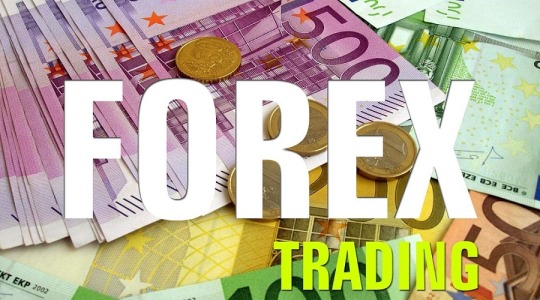
0 notes
Text
Forex Trading in Dubai
Forex Trading in Dubai will see new advancements after the Expo this year. It would become an outlet like a World Trade Center for new solutions too.

0 notes
Text

Forex Expo Dubai 2024 is the 7th grand edition which provides an extravagant platform for Forex traders, Introducing Brokers, Investors, Financial Institutions, and Brokers from all over the Trading.
0 notes
Text
Best online trading company Dubai
Before choosing the best forex broker on the market, you should consult a professional advisor who can give you the right guidance so that you can narrow down your ideas and implement them further. You don't have to publish everything. You need a personal profile that you can manage all by yourself. Now you should have a quick idea on how to choose the best forex trading broker on the market. Choosing the best online trading company Dubai, but you need to know everything about forex trading and be very careful with your money management.

#best crypto trading company in dubai#copy trading#best forex broker in dubai#forex fund management in dubai#forex trading in dubai
0 notes
Text
Navigating the Forex Landscape: Understanding Forex Broker License and Forex Business License
In the world of financial markets, Forex trading serves as a cornerstone for global currency exchange. For businesses looking to engage in Forex brokerage services, obtaining the necessary licenses is not just a legal requirement but a key to credibility and trust in the industry. This article delves into the intricacies of Forex broker license and Forex business license, exploring their significance, the regulatory landscape, and the implications for businesses and investors.

Forex Broker License: A Pillar of Credibility
1.1 The Role of Forex Brokers in Financial Markets
Forex brokers act as intermediaries facilitating currency trading between retail traders and the global Forex market. Their role is pivotal in providing access, liquidity, and execution services to traders looking to speculate on currency price movements. However, to operate legally and gain the trust of clients, Forex brokers must secure the appropriate licenses.
1.2 Regulatory Oversight and Trust
The Forex market, being decentralized and global, lacks a centralized regulatory authority. Instead, regulatory oversight is fragmented across different jurisdictions. Forex broker licenses are issued by relevant regulatory bodies within these jurisdictions, providing a legal framework for brokers to operate. Securing a Forex broker license instils trust among clients by assuring them that the broker operates within established regulatory guidelines.
The Regulatory Landscape for Forex Broker Licenses
2.1 Varied Regulatory Approaches
Different countries and regions have distinct regulatory approaches to Forex trading. Some jurisdictions, like the United Kingdom and Australia, have well-established regulatory bodies, such as the Financial Conduct Authority (FCA) and the Australian Securities and Investments Commission (ASIC), respectively. These bodies enforce strict standards for Forex brokers, including financial transparency, client fund protection, and adherence to anti-money laundering (AML) regulations.
2.2 Challenges in the Regulatory Environment
Navigating the regulatory landscape for Forex broker licenses can be challenging. Brokers must adapt to evolving regulations, often addressing issues related to client protection, fair trading practices, and technological advancements. The regulatory environment demands ongoing compliance efforts, reinforcing the importance of brokers staying informed and engaged with regulatory developments.
The Forex Business License: Beyond Brokerage
3.1 Broader Scope of Forex Business License
While Forex broker licenses are specific to entities facilitating currency trades, a broader category of licensing pertains to Forex businesses as a whole. This encompasses licensing for financial institutions, investment firms, and other entities engaged in various aspects of Forex-related activities, including advisory services, investment management, and algorithmic trading.
3.2 Expanding the Service Spectrum
Forex businesses often offer a range of services beyond traditional brokerage, including market analysis, investment advisory, and educational programs. Securing the appropriate business licenses ensures that these additional services comply with regulatory standards and enhances the overall credibility of the business in the eyes of clients and investors.
Implications for Businesses and Investors
4.1 Credibility and Client Trust
For businesses, obtaining a Forex broker license is not merely a regulatory hurdle but a strategic move to establish credibility in a competitive market. Clients, especially retail traders, are more likely to trust brokers with a valid license, knowing that their interests are protected by regulatory standards.
4.2 Market Entry and Global Expansion
The acquisition of a Forex broker license facilitates market entry and global expansion. Many regulatory authorities have reciprocal agreements, allowing brokers to offer their services across borders once they have obtained a license from a reputable jurisdiction. This global reach is crucial for brokers aiming to attract a diverse client base.
4.3 Investor Protection and Risk Mitigation
From an investor perspective, trading with a licensed Forex broker offers an additional layer of protection. Regulatory bodies often require brokers to segregate client funds, ensuring that traders' assets are protected even in the event of the broker's financial difficulties. This regulatory oversight contributes to a more secure trading environment for investors.
Navigating Challenges and Adapting to Change
5.1 Technology and Innovation
The Forex industry, like many others, is experiencing rapid technological advancements. Brokers need to adapt to new trading platforms, algorithmic trading, and other innovations while ensuring that these technological advancements align with regulatory requirements. Striking a balance between innovation and compliance remains a challenge.
5.2 Evolving Regulatory Frameworks
The regulatory frameworks governing Forex trading are not static. Changes in regulations can impact brokers' operations and strategies. Staying informed about regulatory updates and proactively adapting to changes is crucial for brokers to maintain compliance and uphold their commitment to clients.
In the intricate world of Forex trading, forex broker licenses and forex business licenses are not merely legal requirements; they are foundational elements of credibility, trust, and regulatory compliance. As the Forex landscape continues to evolve,
businesses must navigate the challenges of regulatory compliance, technological innovation, and changing market dynamics.
Obtaining and maintaining the appropriate licenses is not just a regulatory box to check—it is a strategic move that shapes the credibility and success of Forex businesses in an ever-changing financial ecosystem.
#forex broker license#forex business license#Forex License Dubai#Forex License in UAE#forex trading license
0 notes
Text
Unlocking the Secrets of the Forex Market
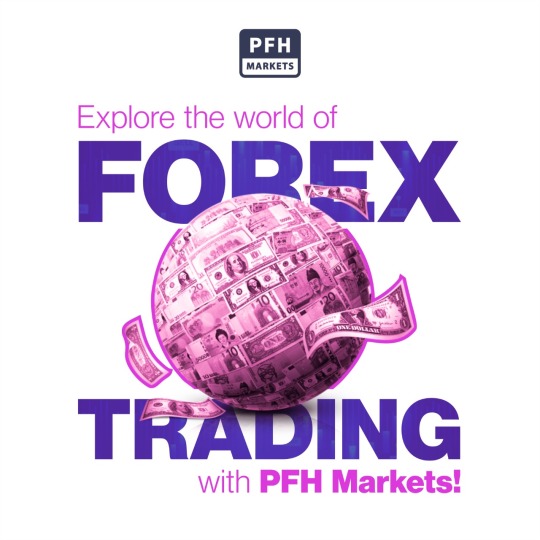
In today's fast-paced global economy, understanding the intricacies of the Forex market is paramount for traders seeking financial success. The Forex market, also known as the foreign exchange market, is the largest and most liquid financial market in the world, with a daily trading volume exceeding trillions of dollars. As such, navigating this dynamic marketplace requires knowledge, skill, and strategic prowess.
Mastering Forex Trading Strategies
To excel in the Forex market, one must employ effective trading strategies that capitalize on market trends and fluctuations. From scalping to swing trading, various techniques exist to accommodate different trading styles and risk appetites. Technical analysis, which involves analyzing historical price data and chart patterns, is widely used to identify entry and exit points in the market. Additionally, fundamental analysis plays a crucial role in evaluating the underlying economic factors driving currency movements.
Risk Management in Forex Trading
While the Forex market presents lucrative opportunities, it also carries inherent risks. Successful traders prioritize risk management to protect their capital and preserve long-term profitability. Position sizing, stop-loss orders, and hedging strategies are essential tools in mitigating risk exposure. Moreover, maintaining discipline and emotional control amidst market volatility is key to sustained success.
Leveraging Technology for Forex Trading
In the digital age, technology has revolutionized the way we trade and invest in the Forex market. Online brokerages and trading platforms offer instantaneous access to global currency markets, empowering traders to execute orders with efficiency and precision. Furthermore, automated trading systems and algorithmic trading algorithms leverage complex algorithms to execute trades based on predefined criteria, eliminating human error and emotional bias.
Educational Resources for Forex Traders
Continuous education and self-improvement are fundamental to success in the Forex market. Fortunately, a plethora of educational resources are available to aspiring traders, ranging from online courses to webinars and educational articles. Additionally, demo accounts offered by brokerages allow novice traders to practice and hone their skills in a risk-free environment before transitioning to live trading.
The Importance of Discipline and Patience
In the fast-paced world of Forex trading, discipline and patience are virtues that cannot be overstated. Impulsive decisions and emotional reactions often lead to costly mistakes and significant losses. By adhering to a well-defined trading plan and sticking to predetermined rules, traders can minimize risk and maximize returns over the long term.
Conclusion
In conclusion, the PFH Forex market offers limitless potential for profit and growth, but success requires dedication, discipline, and strategic acumen. By mastering trading strategies, managing risk effectively, leveraging technology, and continually educating oneself, traders can navigate this dynamic marketplace with confidence and profitability.
1 note
·
View note
Text
Monthly Gold & WTI Crude Oil Forecast: December 2023
Monthly Gold & WTI Crude Oil Forecast: December 2023
https://bestliveforexcomexrecommendationsprovider.wordpress.com/2023/12/03/monthly-gold-wti-crude-oil-forecast-december-2023/
USA #UAE #Germany #Switzerland #Dubai #France #SaudiArabia #Paris #Singapore
#xauusdgold#forex and xauusd signals#forex#forex trading signals#forex signals#forex traders#france#germany#dubai#forex news
0 notes
Text
Is Night Trading Beneficial?
Introduction
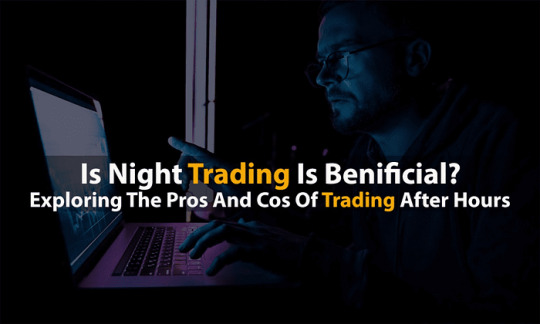
Pros of Night Trading
Extended Trading Hours:
One of the primary advantages of night trading is the extended trading hours it offers. Traditional stock markets have set hours, typically from 9:30 AM to 4:00 PM, limiting opportunities for some traders due to work or other commitments. Night trading allows individuals to participate in the market after their daytime responsibilities.
Reacting to After-Hours News:
Breaking news and events often occur after regular trading hours. Night trading allows you to respond quickly to these developments, potentially taking advantage of significant price movements that may follow.
Reduced Competition:
Night trading typically involves lower trading volumes and reduced competition compared to daytime trading. This can lead to less market manipulation and more stable price movements, providing a favorable environment for certain trading strategies.
Cons of Night Trading
Increased Volatility:
While lower trading volumes can reduce competition, they can also result in increased price volatility during after-hours trading. This heightened volatility can lead to larger spreads and higher trading costs, making it riskier for some investors.
Limited Liquidity:
Reduced liquidity is a significant concern in night trading. Limited buyers and sellers in the market can result in wider bid-ask spreads, making it challenging to execute large orders without significant price impact.
Gaps and Slippage:
Trading at night carries the risk of experiencing “gaps” in prices when markets open the next day. Traders may also encounter “slippage,” where their orders are executed at a different price than expected due to rapid price changes during illiquid periods.
Potential for Reduced Access:
Not all securities are available for night trading, and even when they are, there may be restrictions or limitations. Additionally, some brokerage platforms may charge higher fees for night trading.
Conclusion
The decision to engage in night trading should be based on your individual investment goals, risk tolerance, and trading strategy. While it offers extended trading hours and the potential to react to after-hours news, night trading also carries risks such as increased volatility, limited liquidity, and potential gaps in prices. Therefore, it’s essential to carefully evaluate whether night trading aligns with your financial objectives and to consider consulting with a financial advisor.
In summary, night trading can be beneficial for some traders, but it’s crucial to approach it with caution and a clear understanding of its advantages and drawbacks. By doing so, you can make informed decisions about when and how to participate in the after-hours trading market.
Read more to Visit Fintecmarkets.com
#forexsignals#forexbroker#trader#forexmentor#forex#forex education#forex online trading#forexmarket#forextrading#copy trading#stoc#stock market#stockholm#stocktrading#barang selalu ready stock#investing stocks#dubai#business setup in dubai#abudhabi#qatar#usa#uk#turkey#england#ireland
0 notes
Text
Trading education Dubai:-
DMM is group of people who are knowledgeable and worked in the field of financial advisory. We help people to get necessary information to the traders. We educate people about the risk involved in the financial market and offer them a complete training. We help our clients so they can securely trade in financial Markey. Also, we offer best strategies to our client. To know more info: https://www.dmmgroup.co/trading-education.html

1 note
·
View note
Link
DMM provides a financial market service and helps clients invest and trade safely in the financial market by giving them all the necessary information and resources. To view more visit:- https://www.dmmgroup.co/seminar.html

0 notes
Text
Best CFD broker in Dubai
Once you step into the market, choosing the best forex broker on the market is not so easy as there are numerous brokers available. All forex brokers need to decide which one will help them to keep the trading stage running properly. Above all, the broker you use should be able to bring you more success. Small price fluctuations are not a problem when trading positions, as traders look at long-term trends and indicators when making decisions in the market. Choose the best CFD broker in Dubai to be a successful trader. Range trading is trading within a certain price range. Traders forecast trading ranges for CFDs over a period of time and place orders within the same range.
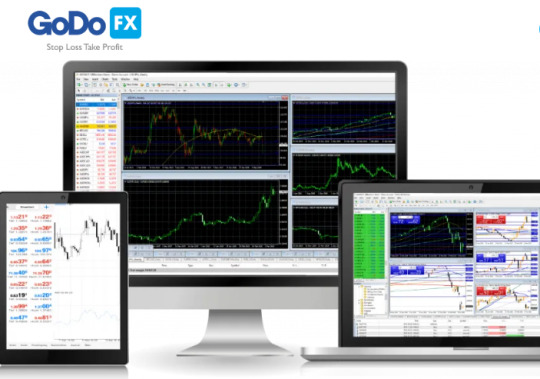
#best crypto trading company in dubai#copy trading#best forex broker in dubai#forex fund management in dubai#forex trading in dubai
0 notes
Text
Client Profit in XAUUSD
our clients start their week with Profits
why you are not making ???
join us now and make daily profit
link - https://bit.ly/3chKD5r
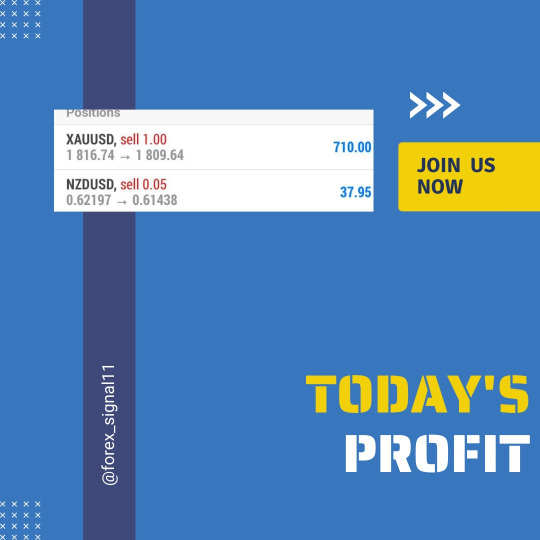
#gbpusd#xauusd#eurusd#forex news#finance#forexmoney#forextrader#us stocks#فوركس#marketing#germany#italy#qatar#dubai#gold trading#trader
1 note
·
View note
Text
A Trading Journal Importance & Strategy
A Trading Journal Importance & Strategy
What is a trading journal? - forex trading course in Dubai
A trading journal records a trader's past trades and the reasoning behind each trade. It is used to track the performance of a trading strategy, identify areas for improvement, and learn from past mistakes.
Importance of Trading Journal - forex trading course in Dubai
Some important aspects of a trading journal include:
Trade Entry and Exit: Recording the details of each trade, including the entry and exit prices, stop-loss and profit targets, and any other relevant information.
Reasoning Behind Trades: Recording the reasoning behind each trade, including the market conditions, technical or fundamental analysis, and any other factors that influenced the decision to enter or exit the trade.
Emotion: Recording your emotions during the trade, and how they may have affected your decision-making process.
Trade Results: Recording the results of each trade, including the profit or loss, and any lessons learned.
Risk Management: Recording the risk management strategies used for each trade, such as position sizing and stop-loss orders.
Reflection: Reflecting on the trades, the reason behind the trades, and what can be improved in the future.
A trading journal is an essential tool for traders because it allows them to track their progress over time, identify patterns, and learn from their mistakes. By keeping a trading journal, traders can see how their trading strategies have performed over time and adjust them as needed to improve their results. It also helps to keep emotions in check and make better decisions.
A trading journal - Strategy - forex trading course in Dubai
A trading journal can be used to track a variety of different trading strategies, including:-
Technical Analysis: A trading strategy that uses charts, indicators, and other technical tools to predict future market movements. A trading journal can be used to record the technical indicators and chart patterns used to make trade decisions, as well as the results of those trades.
Fundamental Analysis: A trading strategy that uses economic and financial data to predict future market movements. A trading journal can be used to record the fundamental data and analysis used to make trade decisions, as well as the results of those trades.
Algorithmic Trading: A trading strategy that uses computer programs and algorithms to automate the trading process. A trading journal can be used to record the rules and parameters of the algorithm, as well as the results of the trades executed by the algorithm.
Swing Trading: A trading strategy that involves holding positions for several days to capture short-term price movements. A trading journal can be used to record the entry and exit points of the trades, as well as the reasoning behind the trade decisions.
Day Trading: A trading strategy that involves buying and selling positions within the same trading day. A trading journal can be used to record the entry and exit points of the trades, as well as the reasoning behind the trade decisions.
Options Trading: A trading strategy that involves buying and selling options contracts, which give the holder the right but not the obligation to buy or sell an underlying asset at a specified price. A trading journal can be used to record the options trades and the reasoning behind the trade decisions.
Scalping: A trading strategy that involves taking small profits on a large number of trades. A trading journal can be used to record the entry and exit points of the trades, as well as the reasoning behind the trade decisions.
Ultimately, the goal of using a trading journal is to track the performance of the strategy over time and to identify patterns and areas for improvement, by keeping a record of the trades, the reasoning, and the results.
Read more …….. Why Choose stock market courses in dubai
forex trading course in Dubai
stock market courses in Dubai
learn forex trading dubai
0 notes
Text
#younginvestors#speculatinginvestingmistakes#best broker to trade gold#best crypto to invest#best forex broker in uae#best forex trading platform uae#best fx trading platform#best investment in uae#best online broker uae#best stock trading platform#best trading platform in uae#brokerage companies in dubai#OrientFinance
0 notes
Text
Monthly #USDMXN Forecast: December 2023
https://bestliveforexcomexrecommendationsprovider.wordpress.com/2023/12/03/monthly-usdmxn-forecast-december-2023/
USA #UAE #Germany #Switzerland #Dubai #France #SaudiArabia #Paris #Singapore
#USDMXN#mexico#mexican#netherlands#singapore#forex signals#forex trading signals#forex#forex traders#france#germany#dubai#xauusdgold#singapore gp 2023#prediksi singapore#singapore23
0 notes